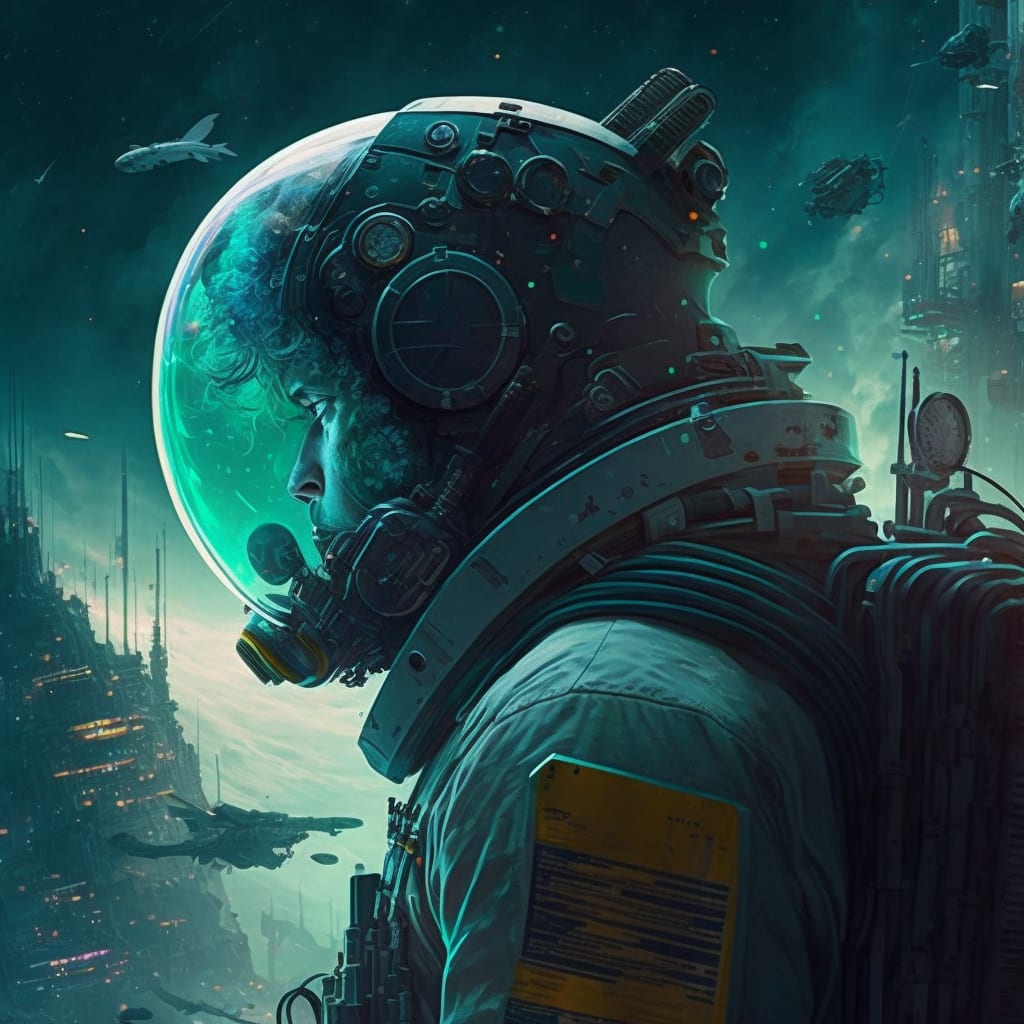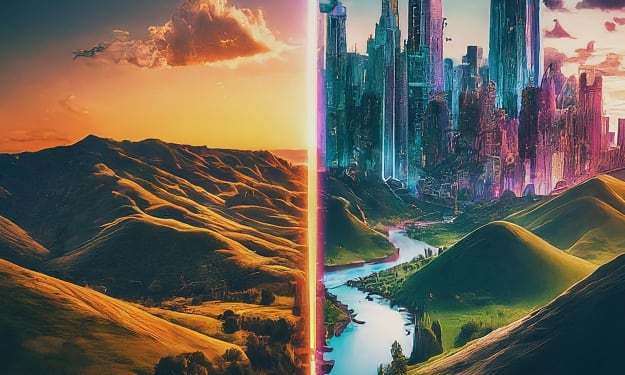
Science fiction (sci-fi) has a profound influence on the real world in various ways, shaping our perceptions, inspiring technological advancements, and sparking discussions about ethical and social issues. In this exploration, we delve into the multifaceted impact of sci-fi on our society and technology.
1. Inspiring Innovation and Technological Advancements
Sci-fi often presents imaginative visions of future technologies that were once deemed impossible but eventually become reality. For instance, the concept of a handheld communication device resembling modern smartphones was popularized by shows like "Star Trek" decades before such devices were commercially available. Today, smartphones are integral to modern life, showcasing how sci-fi can inspire and drive technological innovation.
Similarly, advancements in robotics and artificial intelligence (AI) have been influenced by sci-fi depictions of intelligent machines. Robots like those seen in "I, Robot" or "The Terminator" have pushed researchers and engineers to develop AI systems capable of complex tasks, leading to applications in industries such as healthcare, manufacturing, and transportation.
2. Exploring Ethical and Social Issues
Sci-fi often serves as a platform for exploring complex ethical and social dilemmas. Works like "Blade Runner" and "Black Mirror" delve into questions about the nature of humanity, the consequences of unchecked technological progress, and the ethical boundaries of scientific experimentation. These narratives encourage critical thinking and discussions about the potential risks and benefits of new technologies.
For example, debates about the ethical implications of genetic engineering, as portrayed in films like "Gattaca," have real-world relevance as scientists grapple with the possibilities and limitations of gene editing technologies like CRISPR. Sci-fi scenarios also prompt discussions about privacy, surveillance, and the impact of technology on social interactions, shaping public discourse and influencing policy decisions.
3. Imagining Alternative Societies and Futures
Sci-fi offers a platform for imagining alternative societies and exploring possible futures based on current trends and technologies. Works like "Brave New World," "1984," and "The Handmaid's Tale" present dystopian visions that warn against potential societal pitfalls such as totalitarianism, surveillance states, and loss of individual freedoms. These narratives serve as cautionary tales and encourage reflection on the direction of society.
On the other hand, utopian sci-fi like "Star Trek" presents optimistic visions of a future where humanity has overcome its challenges, achieved unity, and explored the cosmos. These utopian narratives inspire hope and aspirations for a better world, driving efforts toward social progress, inclusivity, and environmental sustainability.
4. Fostering Cultural Exchange and Understanding
Sci-fi is a global phenomenon that transcends cultural boundaries, fostering cross-cultural exchange and understanding. Works from different cultures offer unique perspectives on technology, society, and the human condition. For example, Japanese anime and manga like "Akira" and "Ghost in the Shell" explore themes of identity, consciousness, and the merging of humans and machines, influencing global discussions about transhumanism and cybernetics.
Furthermore, collaborations between creators from diverse backgrounds contribute to a rich tapestry of sci-fi storytelling, blending cultural elements and pushing the genre in new directions. This cultural exchange not only enriches the sci-fi genre but also promotes empathy and appreciation for different perspectives.
5. Encouraging Scientific Exploration and Space Exploration
Sci-fi has long been associated with space exploration and the quest for knowledge beyond Earth. Works like "2001: A Space Odyssey" and "The Martian" inspire curiosity about space, science, and the possibilities of interplanetary travel. These narratives fuel public interest in space exploration and encourage scientific endeavors to explore and understand the cosmos.
Moreover, sci-fi concepts such as warp drives, wormholes, and alien civilizations serve as thought experiments that stimulate scientific inquiry and research into theoretical physics, astrobiology, and cosmology. While some ideas may remain firmly in the realm of fiction, others may eventually lead to breakthroughs that expand our understanding of the universe.
Conclusion
In conclusion, sci-fi's influence on the real world is vast and multifaceted, impacting technology, ethics, society, culture, and scientific exploration. By sparking imagination, stimulating dialogue, and inspiring innovation, sci-fi continues to shape our collective vision of the future and our place in the cosmos. As we navigate the complexities of a rapidly advancing world, sci-fi remains a powerful lens through which we explore the possibilities and pitfalls of tomorrow.





Comments
There are no comments for this story
Be the first to respond and start the conversation.